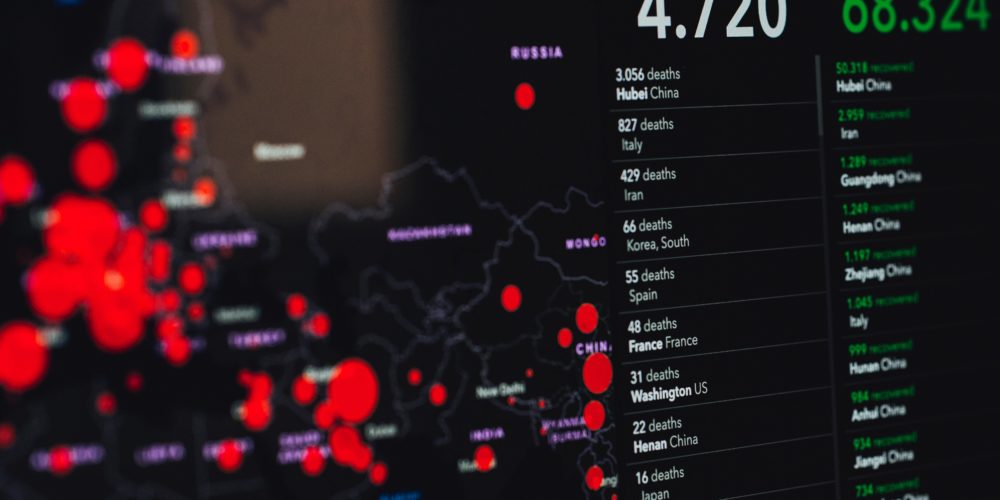Why most of us didn’t see the pandemic coming

I didn’t see the coronavirus pandemic coming.
I’m a strategy advisor, someone who sifts through the signals the world throws up to discern what might be about to change and what needs a response. But I didn’t see this one coming. Did you?
In January many of us were looking forward to a rather different year. Full order books, much travel, many gatherings, busy office life. By March we were sitting in our homes looking shell-shocked. Whole economies were shut down, many businesses went into forced hibernation, millions of workers were laid off.
My first attempt to make sense of the situation centred around the words ‘black swan’ (other words may also have been uttered before that, but this is a family newspaper). Black swan events were popularised by Nassim Nicholas Taleb. They are unexpected events with very low probability of occurrence, but with massive impact when they do happen. Sounds like the coronavirus pandemic, no?
No. Mr Taleb laughs when people call this a black swan. This thing was utterly predictable; it’s just that most of us were not paying attention. Similar (but lower-impact) viruses have caused widespread trouble before. Books were written about the big pandemic to come. TED talks were delivered. We even had movies about it, for crying out loud.
So why were we not paying attention? Anyone following the news in January should have figured out something big was brewing. Most of us gave only cursory attention to the fact that China had locked down an entire province. Most of us looked away and carried on.
To understand why, we need to know our minds better. Psychologists have identified a particular problem with the way we think. It’s called normalcy bias. Most people underestimate the threat posed by looming disasters, be they natural or financial or political, and are plagued by inaction. They underplay both the possibility of the disaster actually happening, as well as its effects on their lives.
This happens even when we have plenty of warning. When governments issue advance alerts of extreme weather events, for example, most people ignore them and try to carry on as normal. Their minds refuse to accept the possibility of severe disruption to their lives; a misplaced optimism kicks in; they search for multiple justifications for their inaction.
Normalcy bias takes many lives.
Because most of us don’t want our lives to change, we convince ourselves that “it’s never that serious” – even when it really is. We knew the world was deeply interconnected; we knew there was more air travel happening than ever before in history; we knew that people would fly carrying the virus; we knew that it would land inside our borders soon. We knew, and yet we didn’t want to know, because knowing is scary. Knowing means making sharp changes to our lives and livelihoods. We would rather whistle and carry on, hoping for the best.
In my case, I managed to correct against the bias and adjusted to the looming danger in good time. The calm, reasoning part of my brain kicked in and took over, and misplaced optimism was banished. I managed to make some tough (and very costly) decisions for myself, my team, my clients and my family, ahead of time.
What have I learned from this? That normalcy bias and many others stalk even the most sober-minded of us. Having been sideswiped by a pandemic, I set out out to learn more about viruses and their transmission. I also set out on two more learning journeys: one about how the mind works and how it is fooled; and the other about how to teach and learn in a world in which it is impossible to gather in person. All three areas of study will hopefully be extremely useful in my life in the years to come.
The strategist in me recognised an old and fundamental lesson: have multiple options. Don’t be wholly invested in one plan or one platform or one way of doing things. A hyperconnected world throws up many surprises and many disruptions. Have the agility to change your dance when the music changes, otherwise you will be forced off the floor for good.
Lastly and always: stay humble. We feel like the rulers of this planet, but the tiniest of microbes mock us. We feel we have many accomplishments to our names, but we can be undone in moments. To be human is to be gullible, fanciful and vulnerable. Let’s embrace our reality and do good things in spite of it.
(Sunday Nation, 24 May 2020)

Buy Sunny Bindra's new book
The X in CX
here »
Popular Posts
- Where are you rushing to—your funeral?June 29, 2025
- How to spot a real thinkerJune 15, 2025
- Built the app, forgot the flowJune 22, 2025
- The map will appear—once you start walking.July 6, 2025
- The pause that saves usJune 8, 2025















